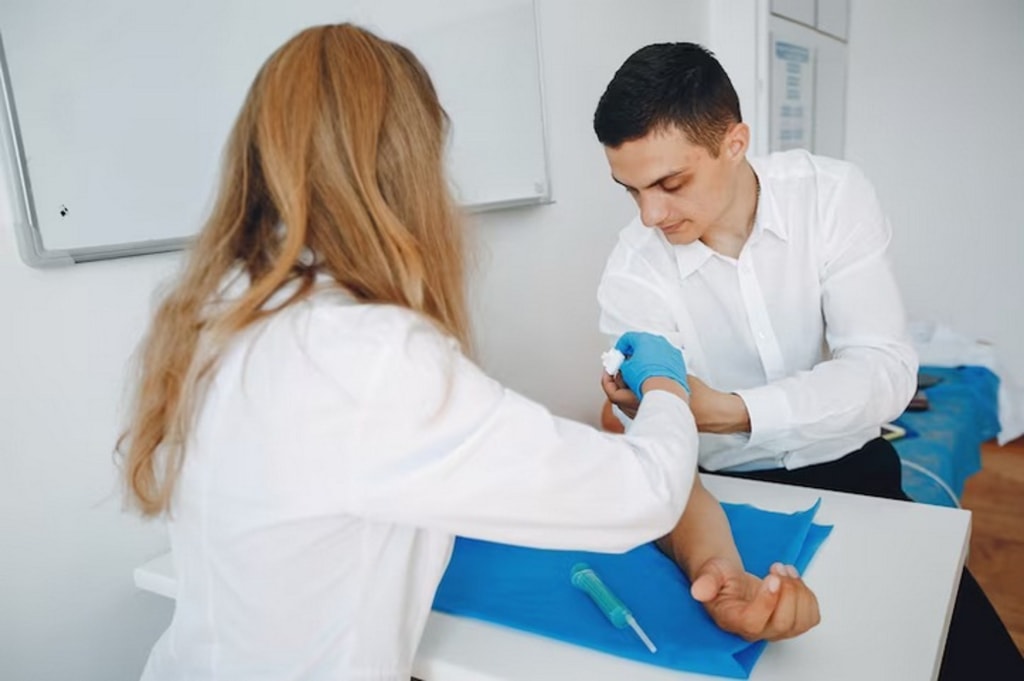The Ultimate Guide To Phlebotomy Courses: Everything You Need to Know
phlebotpmy course filler courses

Introduction:
Phlebotomy is a crucial medical procedure that involves drawing blood from patients for various diagnostic tests, transfusions, or research purposes. Phlebotomy course provide individuals with the necessary knowledge and skills to perform this procedure safely and effectively. In this guide, we will explore everything you need to know about phlebotomy courses, including their importance, curriculum, duration, benefits, and how to choose the right course for your needs.
I. Importance of Phlebotomy Courses:
Phlebotomy courses play a vital role in the healthcare industry by training professionals who can collect blood samples accurately and minimize patient discomfort. Here are some key reasons why phlebotomy courses are important:
Patient Safety: Phlebotomy courses teach proper techniques for venipuncture, reducing the risk of complications such as infection, hematoma, or nerve damage. Trained phlebotomists prioritize patient safety and adhere to infection control protocols.
Accuracy in Sample Collection: Obtaining high-quality blood samples is crucial for accurate diagnostic results. Phlebotomy courses train individuals in the correct identification of veins, suitable collection techniques, and handling of samples, ensuring reliable test outcomes.
Minimizing Patient Discomfort: Skilled phlebotomists aim to make the blood collection process as comfortable as possible for patients. By learning effective communication and pain management techniques, phlebotomy course participants can alleviate anxiety and minimize discomfort during the procedure.
II. Phlebotomy Course Curriculum:
Phlebotomy courses typically cover a range of topics to equip students with the necessary knowledge and practical skills. The curriculum may include:
Anatomy and Physiology: Understanding the circulatory system and the structure of veins is essential for successful venipuncture. Phlebotomy courses provide a foundation in anatomy and physiology related to blood collection.
Venipuncture Techniques: Participants learn various venipuncture methods, such as the vacuum tube system, butterfly system, and syringe method. They are trained to identify suitable veins, prepare the site, and safely collect blood samples.
Infection Control: Maintaining a sterile environment during phlebotomy procedures is crucial to prevent the spread of infections. Courses teach proper hand hygiene, personal protective equipment (PPE) usage, and disinfection protocols.
Blood Collection Equipment: Students familiarize themselves with different types of needles, tubes, and other equipment used in phlebotomy. They learn about their functions, proper handling, and disposal methods.
Specimen Handling and Processing: Proper labeling, storage, transportation, and processing of blood samples are vital to maintain sample integrity. Phlebotomy courses educate students on these essential steps.
III. Duration and Certification:
The duration of phlebotomy courses may vary depending on the program and institution. Generally, they range from a few weeks to several months. Some courses offer flexible schedules, allowing working professionals to attend classes.
Upon completion of the course, participants can opt for certification to enhance their job prospects. Certification is available through organizations such as the National Healthcareer Association (NHA), American Society for Clinical Pathology (ASCP), and National Phlebotomy Association (NPA). Certification exams assess knowledge and practical skills, validating competence in the field.
IV. Benefits of Phlebotomy Courses:
Career Opportunities: Phlebotomy courses open doors to a variety of healthcare settings, including hospitals, clinics, blood banks, research labs, and diagnostic centers. Trained phlebotomists are in high demand, offering numerous job opportunities.
Entry-Level Position: Phlebotomy serves as a stepping stone for those interested in pursuing a career in healthcare. It provides valuable experience and exposure to the medical field, allowing individuals to explore other healthcare professions.
Flexibility and Portability: Phlebotomy skills are transferable and can be applied in various locations. This flexibility enables professionals to work in different cities, states, or even countries, increasing job mobility.
Personal and Professional Development: Phlebotomy courses foster personal growth by improving communication, patient interaction, and organizational skills. These skills are valuable in any healthcare setting and can enhance overall professional development.
Conclusion:
Phlebotomy courses are invaluable for individuals aspiring to become skilled phlebotomists. By ensuring patient safety, accuracy in sample collection, and minimizing discomfort, these courses play a vital role in the healthcare industry. With comprehensive curricula, varying durations, and certification options, phlebotomy courses provide a pathway to rewarding career opportunities. Whether you are starting your healthcare journey or seeking to enhance your existing skills, enrolling in a phlebotomy course can be a beneficial investment in your professional growth.





Comments
There are no comments for this story
Be the first to respond and start the conversation.